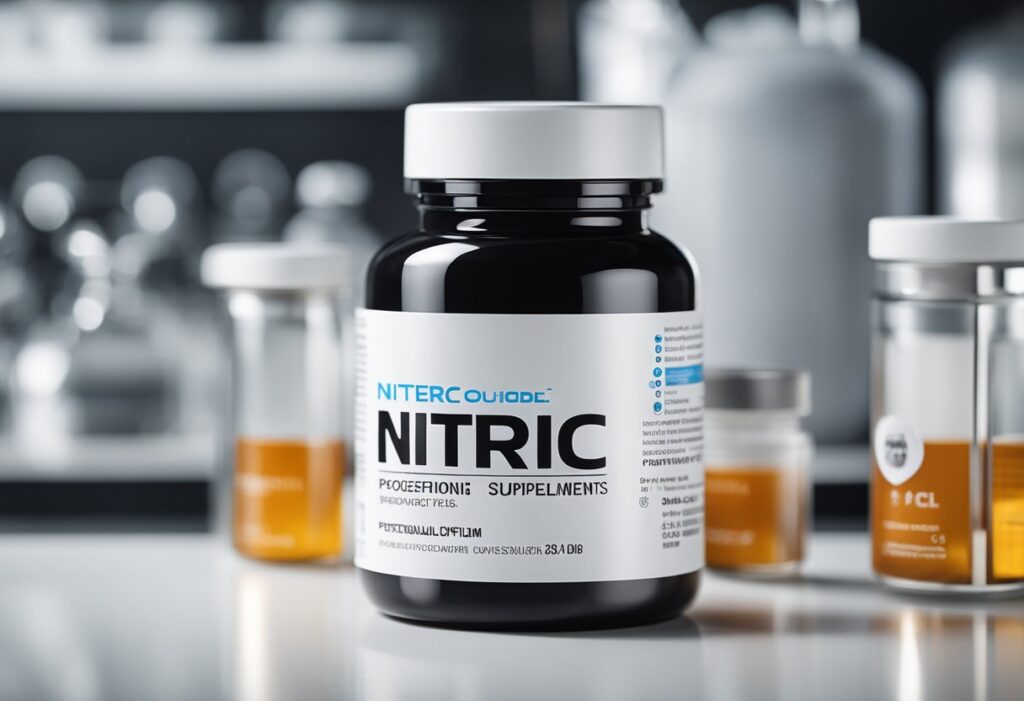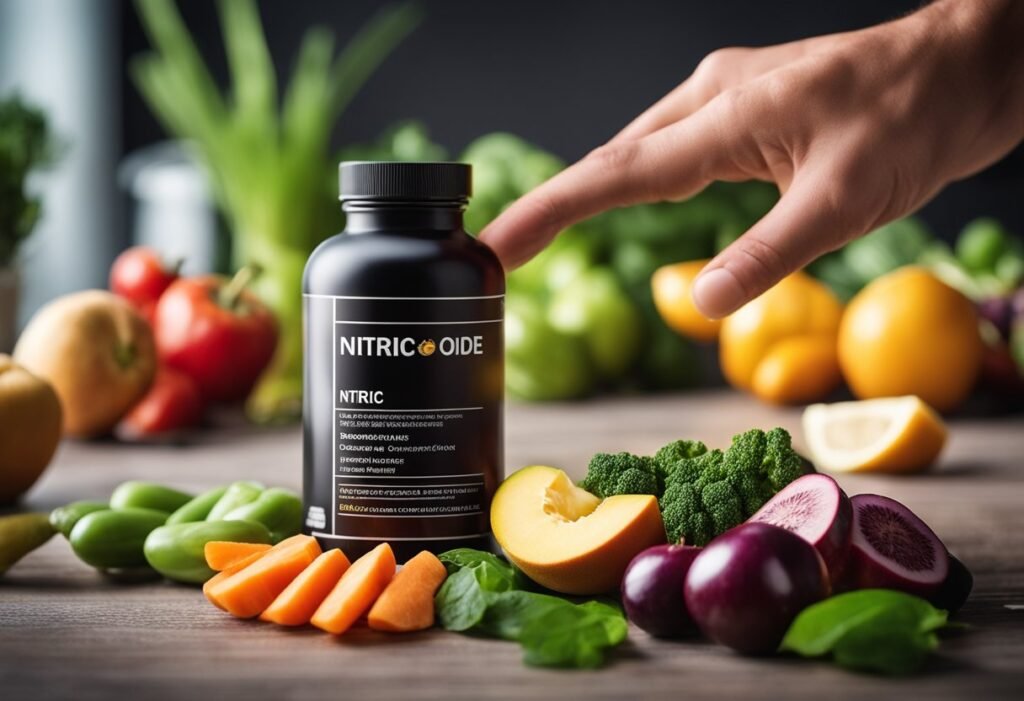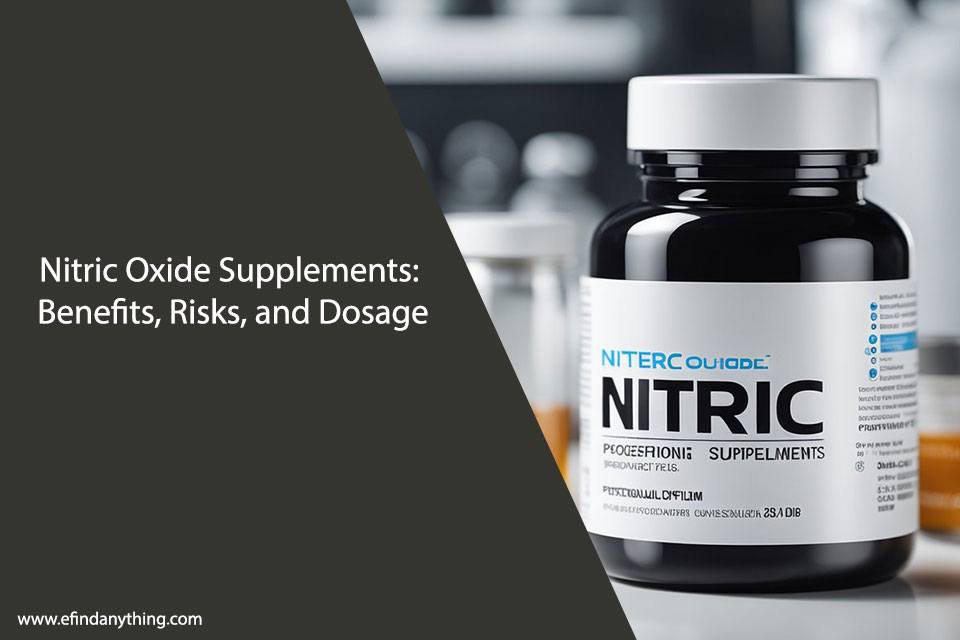Nitric oxide supplements have become increasingly popular in the fitness and bodybuilding communities. Nitric oxide is a gas that is naturally produced in the body and is responsible for dilating blood vessels, increasing blood flow, and delivering nutrients and oxygen to muscles. Nitric oxide supplements claim to enhance these effects, leading to improved athletic performance, increased muscle growth, and faster recovery times.
One of the primary benefits of nitric oxide supplements is their ability to increase blood flow and deliver more nutrients and oxygen to muscles. This can result in improved endurance, strength, and overall performance. Additionally, nitric oxide supplements may help to reduce fatigue and muscle soreness, allowing athletes to train harder and recover more quickly.
While there is some evidence to support the use of nitric oxide supplements, it is important to note that more research is needed to fully understand their effectiveness and potential side effects. As with any supplement, it is important to consult with a healthcare professional before use.
Table of Contents
What Are Nitric Oxide Supplements?

Nitric oxide supplements are a type of dietary supplement that claims to boost the production of nitric oxide in the body. Nitric oxide is a gas that is naturally produced by the body and is involved in many physiological processes, including blood vessel dilation, neurotransmission, and immune function.
The supplements typically contain ingredients such as L-arginine, citrulline, and beetroot extract, which are believed to increase nitric oxide production in the body. Some supplements also contain other ingredients, such as vitamins and minerals, that are thought to support overall health and well-being.
While some studies have shown that nitric oxide supplements may have benefits for athletes and people with certain health conditions, such as high blood pressure and erectile dysfunction, more research is needed to fully understand their effects on the body.
It’s important to note that nitric oxide supplements are not regulated by the FDA, and there is no guarantee that the ingredients listed on the label are accurate or that the product is safe. It’s always a good idea to talk to a healthcare provider before starting any new supplement regimen.
Benefits of Nitric Oxide Supplements

Nitric oxide supplements have gained popularity among athletes and fitness enthusiasts due to their potential benefits for cardiovascular health, exercise performance, and recovery. Here are some of the benefits of nitric oxide supplements:
Cardiovascular Health
Nitric oxide supplements may help improve cardiovascular health by promoting vasodilation, the widening of blood vessels. This can lead to increased blood flow and oxygen delivery to the muscles and organs, which may help lower blood pressure and reduce the risk of heart disease. Nitric oxide supplements may also help improve endothelial function, which is the ability of blood vessels to dilate and constrict in response to various stimuli.
Exercise Performance
Nitric oxide supplements may help improve exercise performance by increasing blood flow and oxygen delivery to the muscles. This can lead to improved endurance, strength, and power output during workouts. Nitric oxide supplements may also help reduce fatigue and improve recovery after exercise.
Recovery and Fatigue Reduction
Nitric oxide supplements may help reduce muscle soreness and fatigue after exercise by increasing blood flow and oxygen delivery to the muscles. This can help improve recovery time and reduce the risk of injury. Nitric oxide supplements may also help improve sleep quality, which is important for muscle recovery and overall health.
In summary, nitric oxide supplements may offer several potential benefits for cardiovascular health, exercise performance, and recovery. However, more research is needed to fully understand the effects of nitric oxide supplements on the body. It is important to consult with a healthcare professional before taking any supplements.
Types of Nitric Oxide Supplements
Nitric oxide supplements are popular among athletes, bodybuilders, and fitness enthusiasts. They are designed to increase blood flow, improve endurance, and enhance muscle growth. There are several types of nitric oxide supplements available on the market, each with its unique benefits and drawbacks.
L-Arginine Based
L-Arginine is an amino acid that is converted into nitric oxide in the body. L-Arginine-based supplements are the most common type of nitric oxide supplements. They are available in various forms, including capsules, tablets, and powders. L-Arginine supplements are popular among athletes and bodybuilders because they can help increase blood flow and improve endurance.
L-Citrulline Based
L-Citrulline is another amino acid that is converted into nitric oxide in the body. L-Citrulline-based supplements are less common than L-Arginine-based supplements, but they are gaining popularity among athletes and bodybuilders. L-Citrulline supplements are available in various forms, including capsules, tablets, and powders. They are known for their ability to improve endurance and reduce muscle fatigue.
Nitrate (NO3) Based
Nitrate-based supplements are relatively new to the market. They work by increasing the production of nitric oxide in the body. Nitrate-based supplements are available in various forms, including capsules, tablets, and powders. They are known for their ability to improve blood flow and reduce blood pressure.
In conclusion, there are several types of nitric oxide supplements available on the market. Each type has its unique benefits and drawbacks. It is essential to choose a supplement that suits your needs and goals. Always consult a healthcare professional before starting any supplement regimen.
Mechanism of Action
Nitric oxide (NO) supplements work by increasing the production of nitric oxide in the body. Nitric oxide is a gas that is naturally produced by the body and is responsible for regulating blood flow, oxygen delivery, and nutrient uptake.
NO supplements contain ingredients such as arginine, citrulline, and beetroot extract, which are known to increase nitric oxide production. These ingredients work by increasing the availability of the amino acid L-arginine, which is a precursor to nitric oxide.
Once L-arginine is converted to nitric oxide, it acts as a vasodilator, relaxing the smooth muscles in the blood vessels and allowing for increased blood flow. This increased blood flow can lead to improved exercise performance, faster recovery, and increased muscle growth.
In addition to its effects on blood flow, nitric oxide also plays a role in immune function and neurotransmitter signaling. Some studies have suggested that NO supplements may improve cognitive function and reduce inflammation.
Overall, the mechanism of action of nitric oxide supplements is based on their ability to increase nitric oxide production, which can lead to improved blood flow, immune function, and cognitive performance. However, more research is needed to fully understand the effects of these supplements and their potential side effects.
Dosage and Administration
Recommended Dosages
When it comes to Nitric oxide supplements, the recommended dosage varies depending on the individual’s weight, age, and health condition. It is important to follow the manufacturer’s instructions and consult with a healthcare professional before starting any supplement regimen.
For most Nitric oxide supplements, the recommended dosage ranges from 2-6 grams per day. However, some supplements may require a higher dosage, up to 10 grams per day. It is important to note that taking more than the recommended dosage can lead to negative side effects.
Timing of Intake
The timing of Nitric oxide supplement intake is also important. It is recommended to take the supplement on an empty stomach, as food can interfere with absorption. Some supplements may also recommend taking the supplement before a workout to enhance performance and increase blood flow.
It is important to note that Nitric oxide supplements should not be taken with medications that lower blood pressure, as it can cause a dangerous drop in blood pressure.
Overall, it is important to follow the recommended dosage and timing instructions for Nitric oxide supplements to ensure optimal results and avoid negative side effects.
Potential Side Effects
While nitric oxide supplements are generally considered safe, there are some potential side effects to be aware of. It is important to note that these side effects may vary depending on the individual and the specific supplement being used.
Headaches
One of the most common side effects of nitric oxide supplements is headaches. This is due to the fact that nitric oxide causes blood vessels to dilate, which can lead to increased blood flow and pressure in the head. While this side effect is usually mild and temporary, it can be more severe in some individuals.
Digestive Issues
Some individuals may experience digestive issues such as nausea, diarrhea, or stomach cramps when taking nitric oxide supplements. This is because the supplements can increase blood flow to the digestive tract, which can cause irritation and discomfort.
Low Blood Pressure
Nitric oxide supplements can also cause a drop in blood pressure, which can be dangerous for individuals with pre-existing low blood pressure or those taking medication for hypertension. It is important to monitor blood pressure regularly while taking nitric oxide supplements.
Interactions with Medications
Nitric oxide supplements can interact with certain medications, including erectile dysfunction drugs and blood pressure medications. It is important to speak with a healthcare provider before taking nitric oxide supplements if you are taking any medications.
Overall, while nitric oxide supplements can provide benefits for athletic performance and overall health, it is important to be aware of the potential side effects and to speak with a healthcare provider before taking them.
Interactions With Medications
Nitric oxide supplements have the potential to interact with certain medications, which can lead to adverse effects. It is important to consult with a healthcare provider before taking any nitric oxide supplements, especially if currently taking any medications.
Some of the medications that may interact with nitric oxide supplements include:
- Blood pressure medications: Nitric oxide supplements can lower blood pressure, so taking them along with blood pressure medications can cause blood pressure to drop too low.
- Erectile dysfunction medications: Nitric oxide supplements can increase the effects of erectile dysfunction medications, which can lead to dangerously low blood pressure.
- Diabetes medications: Nitric oxide supplements can lower blood sugar levels, so taking them along with diabetes medications can cause blood sugar levels to drop too low.
- Nitrate medications: Nitric oxide supplements contain nitrates, which can interact with other medications that also contain nitrates. This can lead to dangerously low blood pressure.
It is important to note that this is not a complete list of medications that may interact with nitric oxide supplements. Always consult with a healthcare provider before taking any new supplements or medications.
Considerations for Athletes
Athletes are always looking for ways to improve their performance, and nitric oxide supplements have been marketed as a way to do just that. However, before jumping on the nitric oxide bandwagon, athletes should consider a few important factors.
Firstly, it’s important to note that while nitric oxide supplements may increase blood flow and oxygen delivery to muscles, there is limited scientific evidence to support their effectiveness in improving athletic performance. Athletes should not rely solely on nitric oxide supplements to enhance their performance.
Secondly, athletes should be aware of the potential side effects of nitric oxide supplements. These may include headaches, nausea, and low blood pressure. It’s important to consult with a healthcare professional before taking any new supplement, especially if you have any pre-existing medical conditions.
Thirdly, athletes should be cautious when purchasing nitric oxide supplements. The supplement industry is largely unregulated, and some products may contain harmful ingredients or inaccurate labeling. Athletes should do their research and only purchase supplements from reputable companies.
In summary, while nitric oxide supplements may offer some potential benefits for athletes, there is limited scientific evidence to support their effectiveness. Athletes should consult with a healthcare professional before taking any new supplement, be aware of potential side effects, and only purchase supplements from reputable companies.
Regulatory Status and Quality Concerns
Nitric oxide supplements are classified as dietary supplements by the United States Food and Drug Administration (FDA). As such, they are not subject to the same rigorous testing and approval process as prescription drugs. However, manufacturers of nitric oxide supplements are required to comply with Good Manufacturing Practices (GMP), which are regulations that ensure the quality and purity of dietary supplements.
Despite these regulations, there are still concerns about the quality and safety of nitric oxide supplements. Some manufacturers may use low-quality ingredients or fail to follow proper manufacturing practices, which can lead to contamination or inconsistent dosages. Consumers should always research the manufacturer and read product labels carefully to ensure that they are getting a high-quality product.
In addition, there have been reports of adverse effects associated with nitric oxide supplements, such as headaches, nausea, and low blood pressure. While these supplements are generally considered safe when taken as directed, it is important to consult a healthcare professional before taking them, especially if you have a medical condition or are taking medication.
Overall, while nitric oxide supplements can be a useful tool for athletes and fitness enthusiasts looking to improve their performance, it is important to be aware of the potential risks and to choose a high-quality product from a reputable manufacturer.
Frequently Asked Questions
What are the proven benefits of taking nitric oxide supplements?
Nitric oxide supplements have been shown to improve blood flow, enhance exercise performance, and reduce fatigue. They may also help lower blood pressure, improve cardiovascular health, and boost cognitive function.
How can one naturally increase nitric oxide levels in the body?
Consuming foods rich in nitrates, such as leafy greens and beets, can naturally increase nitric oxide levels in the body. Exercise and sunlight exposure may also help boost nitric oxide production.
Are there any risks associated with long-term use of nitric oxide supplements?
Long-term use of nitric oxide supplements may increase the risk of kidney damage and oxidative stress. It is important to follow recommended dosages and consult with a healthcare professional before taking any supplements long-term.
What are the common side effects when using nitric oxide supplements?
Common side effects of nitric oxide supplements include headaches, nausea, and stomach discomfort. These side effects are typically mild and go away on their own.
Which foods are rich in nitrates and may boost nitric oxide production?
Foods that are rich in nitrates and may boost nitric oxide production include beets, spinach, arugula, and kale. Other foods such as garlic, watermelon, and pomegranate may also have nitric oxide-boosting properties.
How do nitric oxide supplements improve erectile function?
Nitric oxide supplements can improve erectile function by increasing blood flow to the penis. This increased blood flow can help men achieve and maintain an erection. However, it is important to note that nitric oxide supplements should not be used as a replacement for medical treatments for erectile dysfunction.





